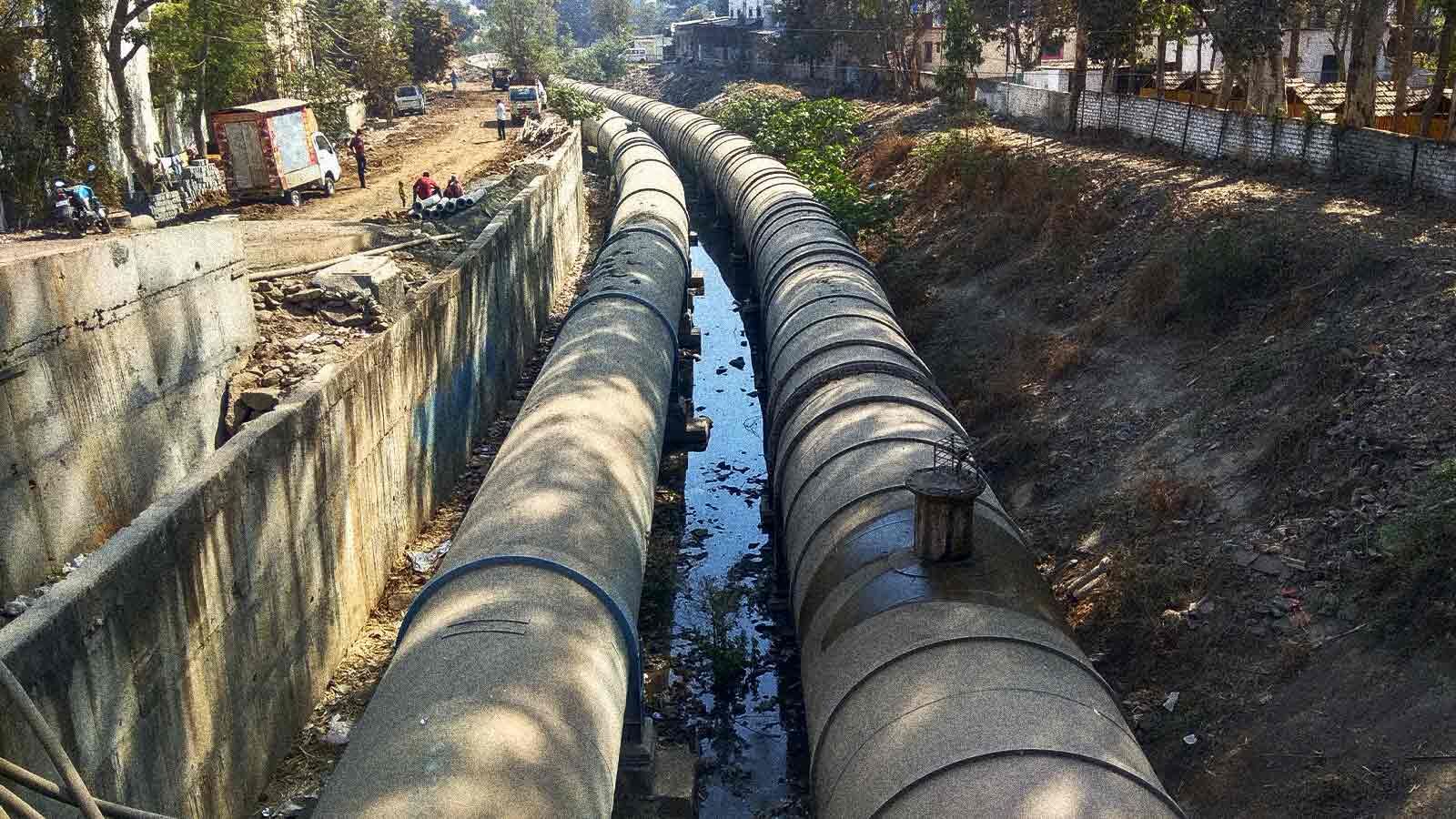Explained: What We Know About COVID Transmission Through Faeces
Knowing whether Covid-19 can be transmitted through faeces or through virus-laden particles released via sewage is important for India where many still defecate in the open and most sewage is released untreated.

Delhi: Faeces of Covid-19 patients contain the virus, sometimes even days after the person tests negative on a Covid-19 swab test. But researchers have been unable to confirm whether the virus could transmit through faeces. We look at the research and explain what this means for sanitation, especially in India where 72% of sewage is left untreated and 72,368 million liters of sewage is generated per day.
What the research says
Researchers, supported by the Indian Council of Medical Research (ICMR) and the National Institute of Virology, tracked a family of four in Pune, Maharashtra, after they tested positive for the SARS-CoV-2 virus on an RT-PCR test, according to a preprint of the study from June 2021.
The first person to test positive, known as the 'index case', was a 37-year-old healthcare worker who worked in the Covid-19 ward of a hospital. Researchers say he spread the infection to his family: his wife, 34, and their two children, aged 8 years and 6 years, who tested positive for Covid-19 a few days after him. The health worker had serious symptoms that lasted the longest, his wife had moderate symptoms, while the children had very mild symptoms.
Researchers tested their stools after their admission to hospital and then on days 14, 21, 32, 40, 48 and 55 from the onset of symptoms, and found the presence of SARS-CoV-2 until at least day 21 in stool samples, even for the children who had mild symptoms. They were excreting the virus even after they had tested negative on pharyngeal swabs and this "suggested the possibility of SARS-CoV-2 transmission via the faecal-oral route", which means that the disease could spread via pathogens in faecal matter of one person that are ingested by another person, the researchers said. Urine samples, collected on admission and 14 days later, were negative throughout but this could mean that "improved methods of testing of urine samples are warranted", the researchers wrote.
Covid-19 Patients Tested In Pune Had The Virus In Their Stool At Least 21 Days After Symptoms
In December 2020, scientists at India's National Chemical Laboratory undertook similar research, along with officials from the Pune Municipal Corporation. They found traces of SARS-CoV-2 in sewage samples collected from different parts of Pune.
Researchers also studied nine Covid-19 patients across three families, 193 other residents, and 24 staff in an apartment building in Guangzhou, China in December 2020. They concluded that the virus could have spread among these families through drainage pipes through faecal-aerosol transmission, which means that small virus-laden particles are released into the air from faeces, which can infect other people. "On the basis of circumstantial evidence, fecal-aerosol transmission may have caused the community outbreak of COVID-19 in this high-rise building," the authors wrote, without confirming that SARS-CoV-2 is transmitted through the faeces.
"If SARS-CoV-2 RNA is detected on water or sewage, infectivity cannot be ruled out," according to a review of literature published in the journal Science of the Total Environment, in June 2021. But so far there have been no confirmed cases of people contracting Covid-19 via this route and little is known about whether aerosols contaminated with the virus can also be released during sewage treatment, the review said.
"We know that it is very important that people have access to clean water in the first place to wash away the Covid-19 virus. But more research is needed to understand what happens with the wastewater from there," said Sushmita Sengupta, programme manager for the Delhi-based based Centre for Science and Environment.
Why is this important for controlling Covid-19 in India?
Knowing whether Covid-19 is only present or is both present and transmitted through faeces of infected patients is important for two reasons: tracking and mapping Covid-19 in a city and for preventing its further spread.
In urban India, only 28% of the 72,368 million litres of sewage generated per day is treated, before it is discharged, often into rivers and other water bodies, putting people at risk of infection if the disease can be transmitted through faeces.
Further, in 2018, nearly 38% of households in Uttar Pradesh, 33% in Bihar and 22.5% in Madhya Pradesh did not have latrines, we reported in June 2020. If Covid-19 could be transmitted through the faecal-oral, open defecation could add to the risk of the disease spreading.
One of the aims of the 2020 study of sewage water in Pune was to find if "testing wastewater could serve as a cost-effective early warning system" to help officials keep track of the disease, even at an early stage and even among asymptomatic people, the authors wrote.
"Epidemiology from wastewater has been useful in the past in surveillance and monitoring for polio, rotavirus," said Mahesh Dharne, principal scientist at the National Chemical Laboratory. For instance, testing sewage for poliovirus is four to five times more sensitive in detecting outbreaks than monitoring communities, found a study from 2018.
As a majority of Covid-19 cases are asymptomatic, they may be missed in testing and diagnosis and tracing the SARS-CoV-2 virus in wastewater could serve as an early indicator for the disease, Dharne explained.
"This kind of research into waste water can be useful as a tool to map out areas in a city where the virus may be present in wastewater. Right now we are still trying to understand the SARS-CoV-2 virus better. We should keep applying whatever tools we can develop," Sengupta said.
We welcome feedback. Please write to respond@indiaspend.org. We reserve the right to edit responses for language and grammar.


